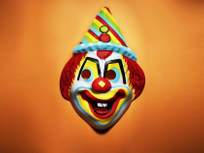Word of the Day
: January 23, 2009espiègle
playWhat It Means
: frolicsome, roguish
espiègle in Context
"Her mother appeared, -- a handsome young country-woman, to whose features, originally sly and espiègle in expression, matrimony had given that decent matronly air…." (Sir Walter Scott, Old Mortality)
Did You Know?
"Espiègle" is a corruption of "Ulespiegle," the French name for Till Eulenspiegel, a peasant prankster of German folklore. Tales of Eulenspiegel's merry pranks against well-to-do townsmen, clergy, and nobility were first translated into French in 1532 and into English around 1560. In the 19th century, Sir Walter Scott introduced his readers to the adjective "espiègle" and the related noun "espièglerie" (a word for "roguishness" or "playfulness") in his Waverley novels. Other 19th century authors followed suit, and even today these words are most likely to be encountered in literature.
More Words of the Day
-
Apr 24
ostensible
-
Apr 23
slough
-
Apr 22
liaison
-
Apr 21
bodacious
-
Apr 20
resurrection
-
Apr 19
fastidious











